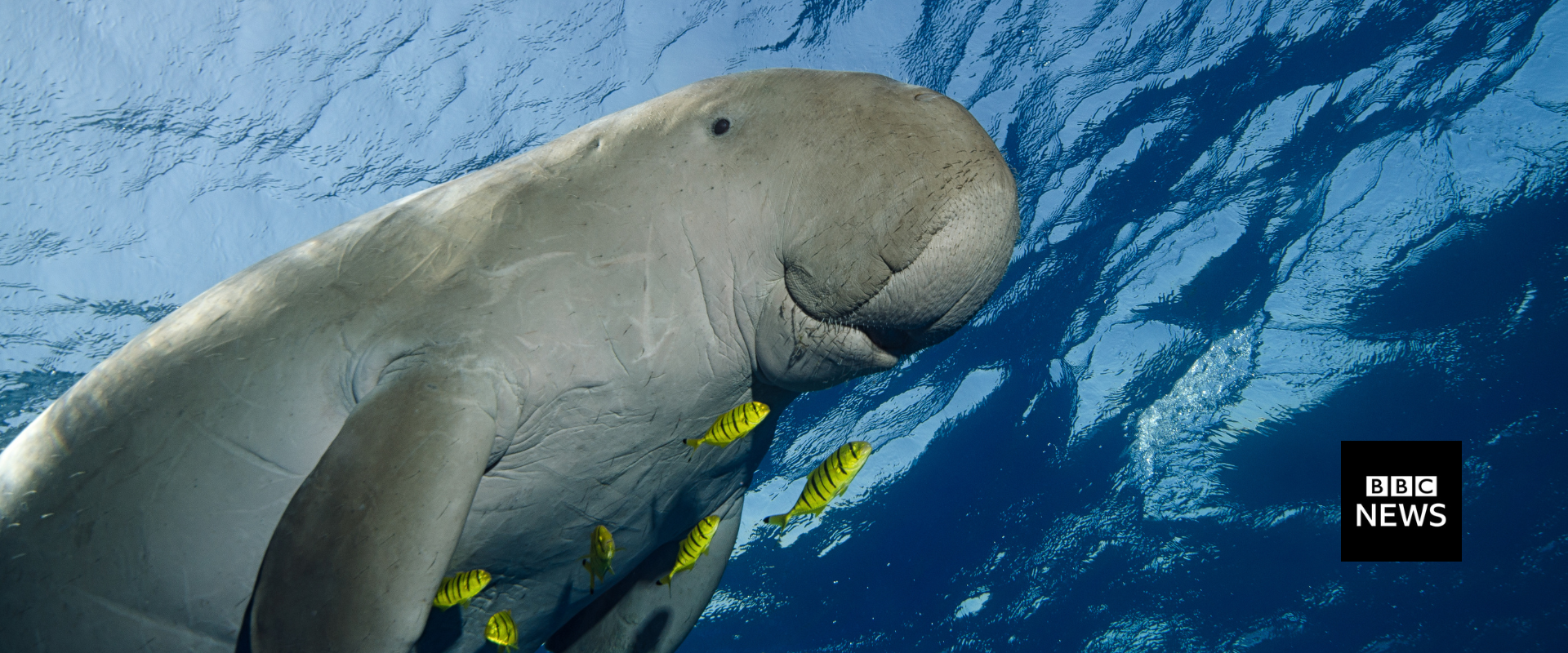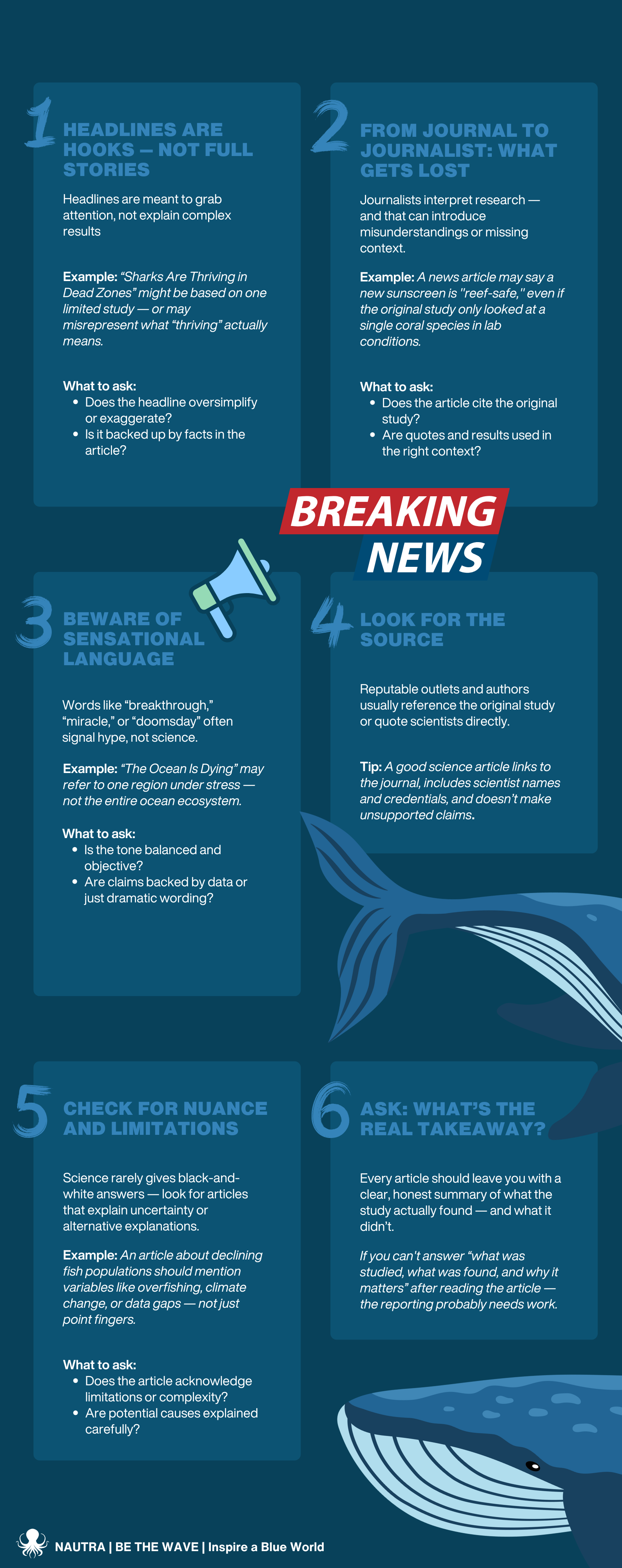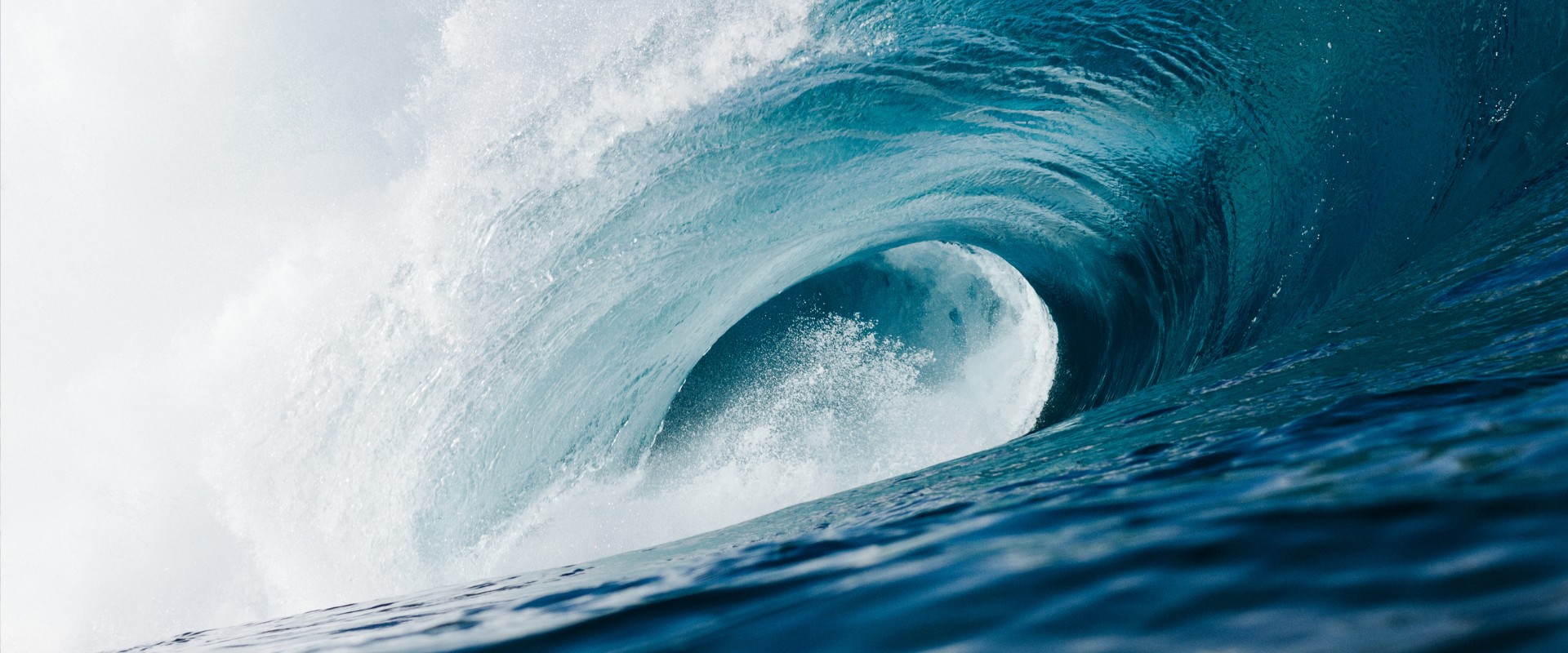Sorting Fact from Hype
Ocean Science in the News

Not every headline gets the science right. Here’s how to tell what’s accurate, what’s exaggerated, and what’s just plain wrong.
Marine science often makes headlines — from climate change and coral bleaching to plastic pollution and endangered species. But when science moves from research papers to news articles, key details can get lost, oversimplified, or distorted. This section explores how scientific findings are communicated to the public and gives you the tools to evaluate what you’re really reading.
Whether you're scrolling social media, reading an article, or watching a documentary, this guide helps you spot good reporting, ask critical questions, and avoid being swept away by hype.
Step-by-Step:
How to Decode Ocean Science in the Media
Let’s break down the common ways scientific findings are communicated — and how to tell what’s trustworthy.

Why It Matters
Science is only useful if we understand it.
Accurate reporting builds public trust in marine science and ensures that decisions — from personal actions to policy — are based on truth, not spin.
It helps you distinguish science from opinion or sensationalism.
It strengthens your ability to interpret environmental news responsibly.
It reduces the spread of misinformation on social media.
It empowers you to speak confidently about marine issues.
It supports fair, informed conversations about conservation.
It encourages media outlets to report ocean science more carefully.
FREE GUIDE
Ocean Science in the News
A quick-reference tool for evaluating marine science stories in the media — with simple questions to help you spot hype, distortion, or missing context. Perfect for printing, sharing, or revisiting anytime.
UP NEXT:
Communicating Science
Step-by-step guidance for understanding scientific research — from decoding jargon to making sense of data and conclusions. Learn how to read marine science papers with clarity and confidence.






